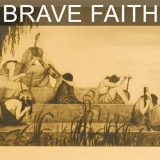The Vicious Habit of Depersonalizing Everyone Into a Rival. A No-No the Bible and Research Teaches Us

I most always preach out of the New Living Translation. It is written at a 4th grade reading level so I believe everyone I’m teaching to will understand it. So today’s verse I’m using is found in Galatians 5:19-21. When you follow the desires of your sinful nature, the results are very clear: sexual immorality, impurity, lustful pleasures, idolatry, sorcery, hostility, quarreling, jealousy, outbursts of anger, selfish ambition, dissension, division, envy, drunkenness, wild parties, and other sins like these. Let me tell you again, as I have before, that anyone living that sort of life will not inherit the Kingdom of God.
That’s quite a list. There are some biggie sins listed and then there are some what? sins listed. You look at this list and see how you yourself have failed. You don’t like this list because you don’t want to learn how you have failed.
You also learn the judgment of your choices that are on this list. You will not inherit the Kingdom of God. That is for here on this earth and on the new earth in the life after. Even here we have a chance to live someway better because of the grace of God choosing us. Not because we are so good in our behavior (want to read that list again?!) but because he simply loves us while we were yet sinners. (Romans 5:8).
I quote that Romans 5:8 verse often here at Bravester because I never want to wander far from that truth in all that we learn. It always starts right here.
Here’s that same list from The Message, a very modern paraphrase of the same Bible. It is obvious what kind of life develops out of trying to get your own way all the time: repetitive, loveless, cheap sex; a stinking accumulation of mental and emotional garbage; frenzied and joyless grabs for happiness; trinket gods; magic-show religion; paranoid loneliness; cutthroat competition; all-consuming-yet-never-satisfied wants; a brutal temper; an impotence to love or be loved; divided homes and divided lives; small-minded and lopsided pursuits; the vicious habit of depersonalizing everyone into a rival; uncontrolled and uncontrollable addictions; ugly parodies of community. I could go on. This isn’t the first time I have warned you, you know. If you use your freedom this way, you will not inherit God’s kingdom.
That’s quite a list! Again. This one should have really stopped you in your tracks. With fresh and accurate words this list suddenly exposes the dysfunction of your life. And probably pains you. It’s time for Romans 5:8 again. This time from The Message. But God put his love on the line for us by offering his Son in sacrificial death while we were of no use whatever to him. We are truly loved–in our dysfunctional mess.
I’ve been talking about “in groups” and “out groups” and our striving to be accepted and worthy. Then in my devotions this section of Galatians jumped out at me, “the vicious habit of depersonalizing everyone into a rival.” Is that not what scarcity and comparison has driven us to? Right here in the Bible?!
I did a bit more of a comparison study and found this in the Living Bible (a favorite in the 1970s). That same section was translated as “the feeling that everyone else is wrong except those in your own little group.” Is that not 2018?! Is that not Facebook every day?!
Because of fear and pain—which there are plenty of in our culture in 2018 and this is not even talking about our personal fears and pain—we sort people into “in groups” and “out groups.” For our own mental protection we prefer to hear our own thoughts about what is right and what is wrong bounced back to us by the books we read, podcasts we listen to, where we visit online, sermons we hear, television shows we watch, and churches we attend. The world is so crazy we want to crawl into our safe defined boxes with people safely like us and put everyone else as “the others.”
The Bible calls us out on this. Clearly showing us that we are depersonalizing others and this is not good. From the research of Dr. Brene’ Brown (research!) and in her book, Braving the Wilderness, she made this statement about living a life of faith:
“Dehumanizing and holding people accountable are mutually exclusive. Humiliation and dehumanizing are not accountability or social justice tools, they’re emotional off-loading at best, emotional self-indulgence at worst. And if our faith asks us to find the face of God in everyone we meet, that should include the politicians, media, and strangers on Twitter with whom we most violently disagree. When we desecrate their divinity, we desecrate our own, and we betray our faith.” –Braving the Wilderness, p. 76
This is on that “bad list,” people.
Can we find our way back to ourselves and to each other, and still keep fighting for what we believe in? No and yes. No, not everyone will be able to do both, simply because some people will continue to believe that fighting for what they need means denying the humanity of others. That makes connecting outside our bunkers impossible. I do believe, however, that most of us can build connection across difference and fight for our beliefs if we’re willing to listen and lean into vulnerability. –Braving the Wilderness, p. 58
There it is again. Vulnerability. The vulnerability that leads to bravery. The vulnerability that is full of tension but it is holy tension because something holy is going to happen. This is braving the wilderness for Dr. Brene’ Brown.
In 2018 something holy needs to happen.
Aren’t you tired of the battles on Facebook? You just want to have pictures of your grandkids, cute memes, maybe some inspirational memes (like the Bravester ones), and your own beliefs bounced back to you when you use our downtime to scroll through Facebook. To turn Facebook into a place of safety, you may have unfriended some friends. Lean into this tension, maybe holy tension, and keep those friends. Because…
I just finished another great book, White Awake: An Honest Look at What It Means to be White by Daniel Hill. For some of you, just that title brought you some discomfort because you are so tired of that discussion. Lean into the vulnerability, please. From this book:
One of the casualties of an allegiance to the good/bad binary is what Dr. Robin DiAngelo refers to as “the very unhelpful phenomenon of unfriending on Facebook,” where we distance ourselves from white people who don’t align with our values. Because we don’t want to be implicated in their badness, we literally or metaphorically excommunicate them from our friendship circle.
We may believe that this shows solidarity with people of color, and we hope that the dramatic gesture confirms that we’re staying awake. Unfortunately, this type of thinking is backward. It’s not a dramatic gesture at all, because one of the easiest actions we can take is to turn our back on someone who doesn’t agree with us. And the tendency to engage in unfriending is one of the primary fuel sources of self-righteousness, as it promotes the false good/bad binary. Finally, it exonerates us from one of the important duties of a white-awake person: investing in other white people. –Daniel Hill, White Awake: An Honest Look at What It Means to be White, p. 174
A vulnerable challenge has been launched here. Stop daydreaming about unfriending those certain friends. This is as old as Galatians. There is a call here.
Can we find our way back to ourselves and to each other? Galatians 5 closes with these verses, vv. 25-26, Since we are living by the Spirit, let us follow the Spirit’s leading in every part of our lives. Let us not become conceited, or provoke one another, or be jealous of one another. Can we do this, people?
We have to find our way back to one another or fear wins. –Dr. Brene’ Brown, Braving the Wilderness, p. 59
Yes, there is fear in this. There is vulnerability in this. Let us bravely follow the Spirit’s leading in every part of our lives.
(photo credit: Pixabay.com)






Comments
Trackbacks & Pingbacks
[…] humans have a long history of othering the other, mostly due to scarcity and fear. As Christians, because Jesus called this out time and time […]
[…] box which matches your beliefs. If someone doesn’t equal your beliefs, you put them in that “other” box and separate yourself from them. To have everyone in our certain box is more comfortable. It […]
[…] environmentalists protecting the spotted owl” or other labeling people use to divide us and depersonalize us. Which is a badly justified way we use to deal with our own […]
[…] our world full of scarcity that is becoming even more and more polarized, we need more prayer! Not only for God to intervene on our behalves but also to change people’s […]